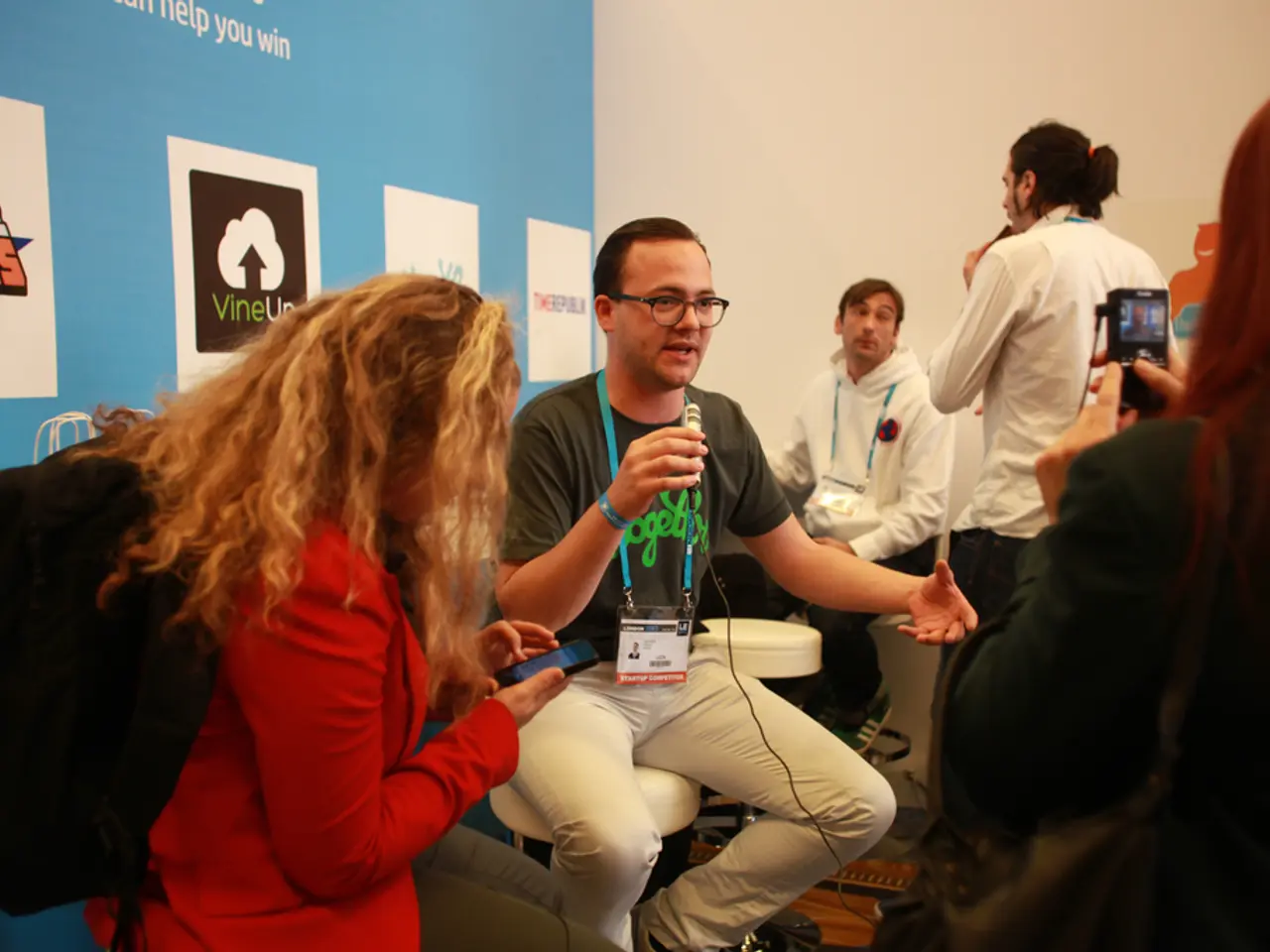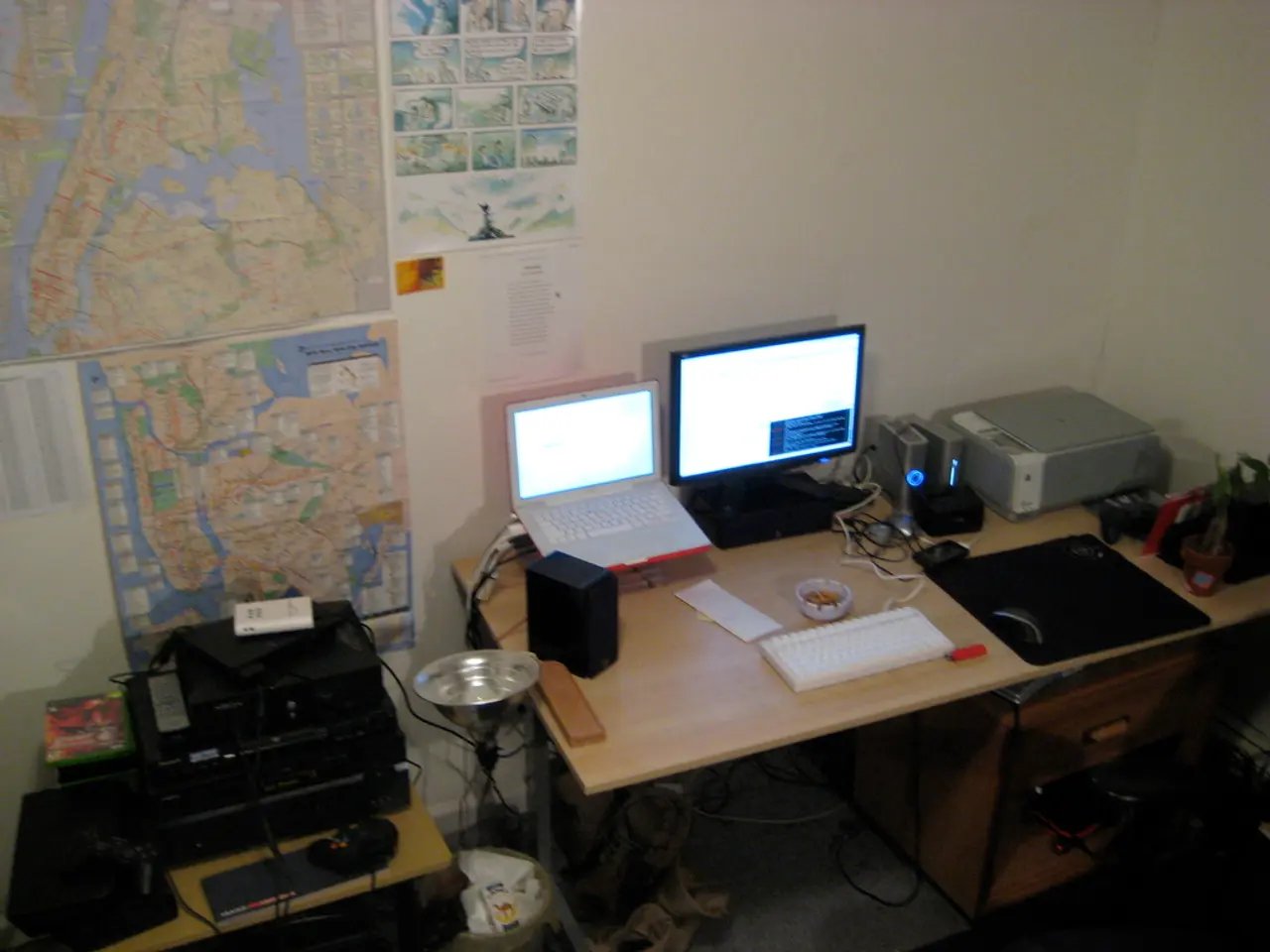AI Transforming Talent Acquisition: The New Way Companies Are Finding Top Talent Through Artificial Intelligence?
In the ever-evolving world of recruitment, artificial intelligence (AI) is set to play a pivotal role in transforming the way businesses find and hire talent. Here's a look at some of the key trends that are shaping AI-based recruitment and talent acquisition for 2025.
Recooty, a comprehensive AI-powered software, assists in writing clear job descriptions, generating professional email templates, and improving the onboarding experience. Meanwhile, Paradox's AI assistant, Olivia, takes charge of scheduling interviews and resolving candidates' queries, reducing mental uncertainty.
Workable, an HR platform, simplifies finding, hiring, and managing human resources. It uses AI for tasks such as preparing job descriptions, interview questions, and candidate shortlisting. The platform also allows automation of important functions such as candidate evaluation, onboarding, payroll processing, and performance reviewing.
Workable ensures data security through a dedicated team of cybersecurity experts and features like multi-layer application security and encryption. This emphasis on security is crucial as AI becomes more integrated into recruitment processes.
Predictive analytics can help analyse HR data, understand training effectiveness, retention, and churn rates, and improve recruitment efficiency. This data-driven approach is becoming increasingly important as businesses strive to make informed decisions about their workforce.
Careerflow.ai and Wellfound are examples of job search tools that use AI to reduce job search frustration by accurately matching a candidate's resume with desired job roles and providing feedback on how to improve resumes.
Another significant trend is the move towards AI-augmented recruiting combined with human oversight. This approach emphasizes faster, more consistent hiring while maintaining ethical and human elements. AI-powered resume screening and candidate engagement is expected to become widespread, automating tasks such as screening, scheduling interviews, and managing high volumes of applications.
AI-driven assessments are also increasingly being used for skill-based recruitment, with over 80% of firms adopting this approach for more objective evaluations aligned with job needs. Advanced AI technologies, such as voice and video AI interviewing, augmented reality onboarding experiences, continuous learning bots, and integration of wellness and sentiment analysis into hiring algorithms, are also expected to play a significant role.
Retention-focused recruiting is another trend, with AI helping to identify candidates better aligned with long-term company values and career paths, supporting retention and full-lifecycle talent management beyond just hiring.
Ethical use of AI is paramount, and organizations are prioritizing responsible and ethical AI use to avoid biases and reinforce fairness, ensuring that AI augments rather than replaces human decision-making.
These trends reflect AI’s evolution from a novelty to a necessary, integrated tool that accelerates hiring processes, improves candidate quality and diversity, supports stronger employer branding, and fosters durable employee relationships, all while retaining a critical human touch.
Humanly, another HR software, facilitates AI-powered SMS and emailing services and uses AI agents to engage with candidates 24/7 and pre-screen candidates. GenAI tools can create customized job postings and provide real-time feedback to eligible candidates through NLP techniques.
As we move towards 2025, it's clear that AI will aid human capabilities to build a team of strong and skilled employees, enhancing the recruitment process and fostering a more efficient and fair hiring landscape.
[1] McKinsey & Company. (2020). The Future of Recruiting: How AI is Transforming the Hiring Process. [Online] Available at: https://www.mckinsey.com/business-functions/mckinsey-digital/our-insights/the-future-of-recruiting-how-ai-is-transforming-the-hiring-process
[2] Deloitte. (2019). The Future of Talent Acquisition: How AI is Transforming the Hiring Process. [Online] Available at: https://www2.deloitte.com/content/dam/insights/us/articles/5606_talent-acquisition-ai/DI_talent-acquisition-ai.pdf
[3] Gartner. (2019). The Future of HR: The Top 10 HR Predictions for 2020 and Beyond. [Online] Available at: https://www.gartner.com/en/human-resources/hr-leaders/the-future-of-hr-the-top-10-hr-predictions-for-2020-and-beyond
[4] World Economic Forum. (2019). The Future of Jobs Report 2020. [Online] Available at: https://www.weforum.org/reports/the-future-of-jobs-report-2020
- Machine learning algorithms, such as those used by Recooty, Workable, and Humanly, are anticipated to revolutionize various aspects of the recruitment process, including job description writing, interview scheduling, candidate evaluation, onboarding, payroll processing, performance review, and resume screening.
- As technology advances, hackathons focused on artificial intelligence and machine learning are expected to play a significant role in driving innovations in the recruitment sector, with a particular emphasis on creating more efficient, fair, and data-driven hiring strategies for 2025 and beyond.




